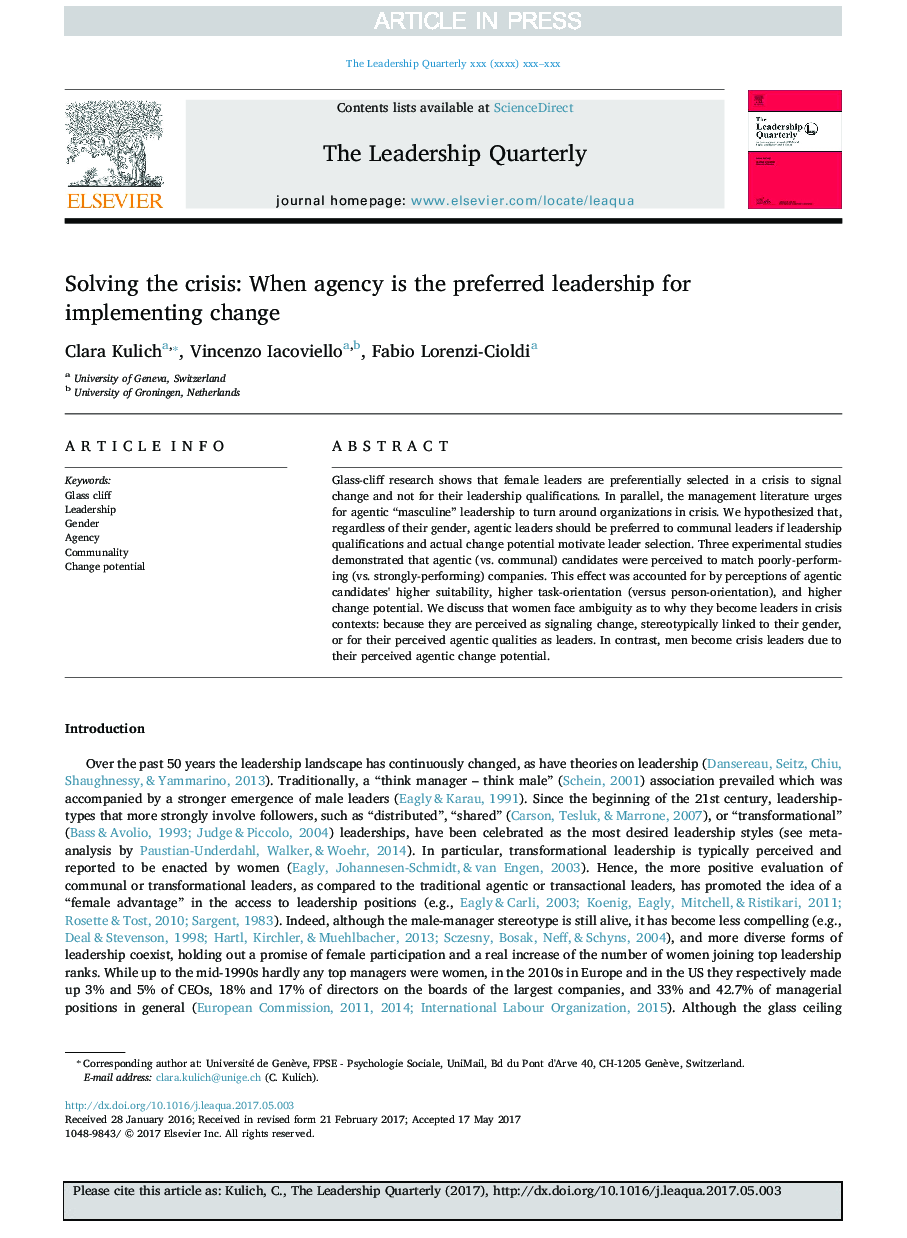| Article ID | Journal | Published Year | Pages | File Type |
|---|---|---|---|---|
| 7247821 | The Leadership Quarterly | 2018 | 18 Pages |
Abstract
Glass-cliff research shows that female leaders are preferentially selected in a crisis to signal change and not for their leadership qualifications. In parallel, the management literature urges for agentic “masculine” leadership to turn around organizations in crisis. We hypothesized that, regardless of their gender, agentic leaders should be preferred to communal leaders if leadership qualifications and actual change potential motivate leader selection. Three experimental studies demonstrated that agentic (vs. communal) candidates were perceived to match poorly-performing (vs. strongly-performing) companies. This effect was accounted for by perceptions of agentic candidates' higher suitability, higher task-orientation (versus person-orientation), and higher change potential. We discuss that women face ambiguity as to why they become leaders in crisis contexts: because they are perceived as signaling change, stereotypically linked to their gender, or for their perceived agentic qualities as leaders. In contrast, men become crisis leaders due to their perceived agentic change potential.
Keywords
Related Topics
Social Sciences and Humanities
Business, Management and Accounting
Business and International Management
Authors
Clara Kulich, Vincenzo Iacoviello, Fabio Lorenzi-Cioldi,
